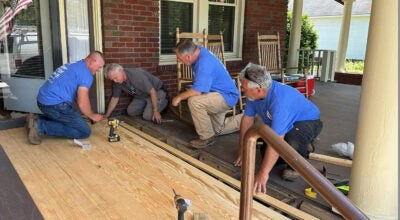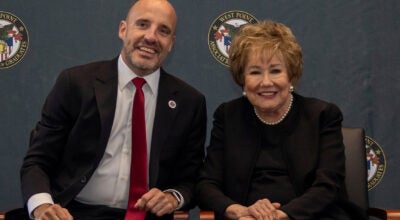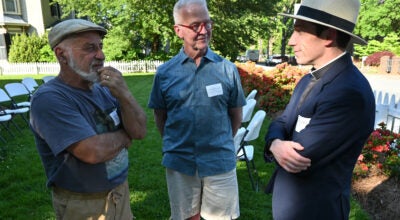RCCC’s N.C. Research Campus project back on track after delay to get financing
Published 12:00 am Tuesday, December 1, 2009
By Emily Ford
eford@salisburypost.com
KANNAPOLIS ó Talk about transformation.
Six years ago, Kannapolis was “ground zero for economic dislocation in our state” said Dr. Scott Ralls, president of the N.C. Community College System.
Pillowtex had closed its doors, forcing more than 4,300 area residents out of work in the biggest layoff in state history.
Now, Kannapolis is home to the $1.5 billion N.C. Research Campus and potentially thousands of biotechnology jobs, which will be filled in part by workers trained at the new branch of Rowan-Cabarrus Community College.
Ralls, Research Campus founder David Murdock and others ceremoniously broke ground Friday for the long-awaited, $26 million RCCC building.
With the new facility, expected to open in August 2010, and other higher-education partners, Kannapolis exemplifies the state’s longtime mantra “education is economic development,” Ralls said.
“It’s more alive here than any place you could find,” he said.
For every doctorate position created by the Research Campus, at least five other jobs will be available for people who have training like that available at RCCC, college president Dr. Carol Spalding said.
Yet “so many see working at the Research Campus as an unattainable dream,” Spalding said.
Randy Crowell proves them wrong, she said.
Crowell, who was laid off from Pillowtex and then Duracell, earned a biotech degree at a community college in Texas. He returned to Rowan County and now works as a lab technician for the David H. Murdock Research Institute.
Crowell, whose story was detailed last month in the Salisbury Post, waved from the stage during the groundbreaking ceremony.
Construction of the RCCC building was delayed for more than a year due to scarce financing, Spalding said, but supporters never gave up.
“We are here because community colleges can take the big idea and make the vision real,” she said.
The big idea is to improve human health, nutrition and medical care through scientific research at a molecular level.
Students who graduate from RCCC and work at the campus will help “find cures for diseases and make a difference all over the world,” Spalding said.
Lt. Gov. Walter Dalton called RCCC one of the best community colleges in the state’s vast system, which he said is the best in the nation.
In the knowledge-based economy of the 21st century, the Research Campus is “setting the standard not only for the nation but the world,” Dalton said.
RCCC joins seven schools from the University of North Carolina system and Duke University at the Research Campus, which also has 17 private industry partners.
The campus includes two large academic buildings that house the universities, the five-story Core Laboratory Building and, in about 15 months if all goes well, the RCCC building.
Other delayed construction projects should resume soon, Murdock said, including a shared facility for Carolinas Healthcare System and Pharmaceutical Product Development Inc. and a greenhouse complex for N.C. State University.
Murdock once owned the old textile mill where the campus now stands. When he bought back the shuttered plant in 2004, his dream was to put people back to work, said Lynne Scott Safrit, president of campus developer Castle & Cooke North Carolina.
“Jobs based on knowledge,” she said. “Jobs that would require using your mind, not your back.”
Of all the components at the Research Campus, RCCC will do the most to transform the community, Safrit said.
She called the groundbreaking “one of the most significant events that will occur on the North Carolina Research Campus.”
RCCC will serve as the glue that seals the community with the vision, said N.C. Sen. Fletcher Hartsell, who has worked to secure more than $3 million per year in state funding for the new building.
“It’s the single most important factor on this campus,” Hartsell said.
RCCC will lease the 62,332-square-foot building from Castle & Cooke for 20 years, when the state will own it.
Dalton called Murdock, the billionaire owner of Dole Food Co., “one of the great visionary leaders of our time.”
Murdock has maintained a home outside Kannapolis since 1982, when he bought the textile mill. He often declares his love for North Carolina and Kannapolis and recently referred to himself as a “linthead,” a moniker used for someone who worked in textiles.
“The name David Murdock will echo throughout history,” Dalton said.
Kannapolis “used to be where you clothed the world,” he said. “Now it’s where you improve the quality of life in the world.”





